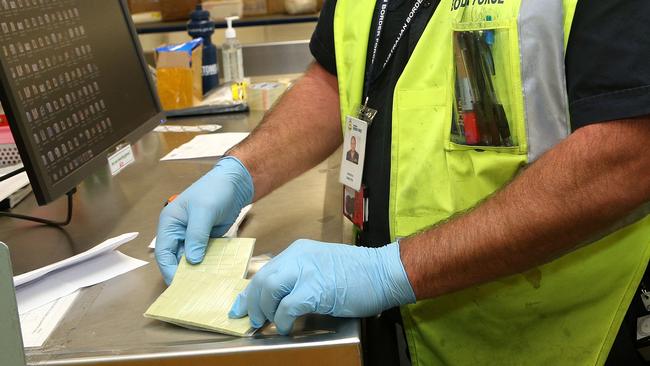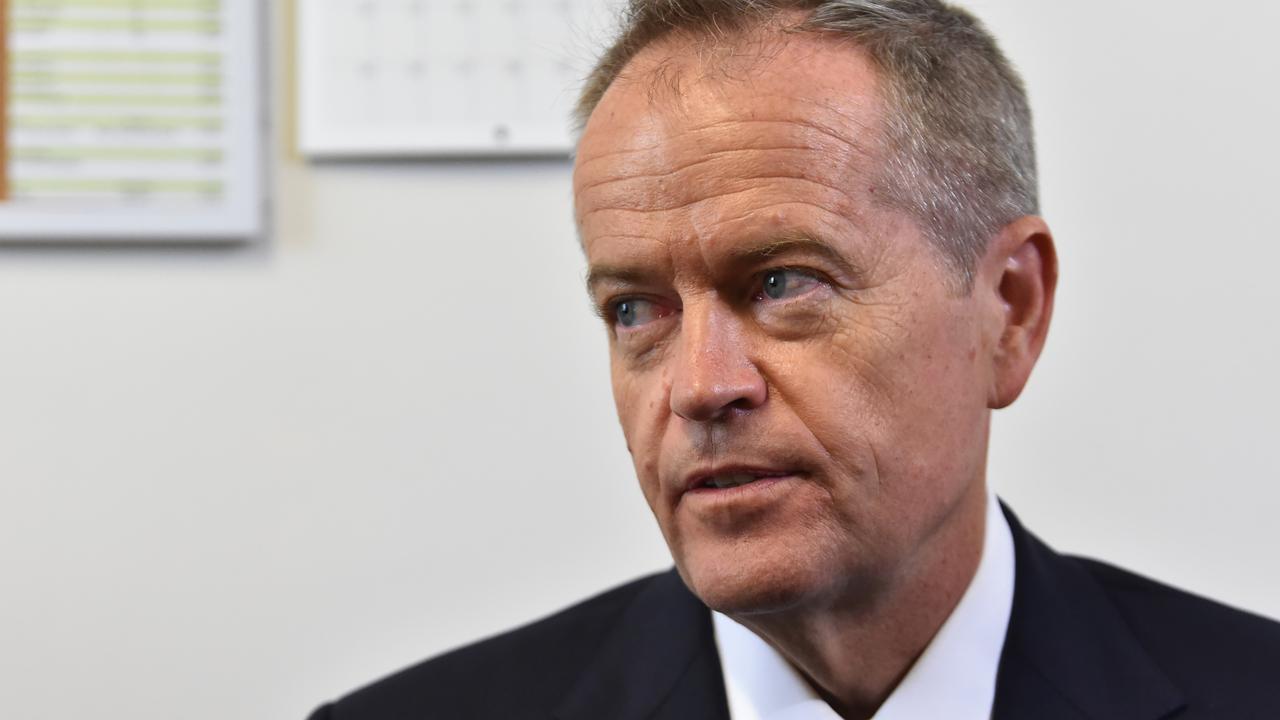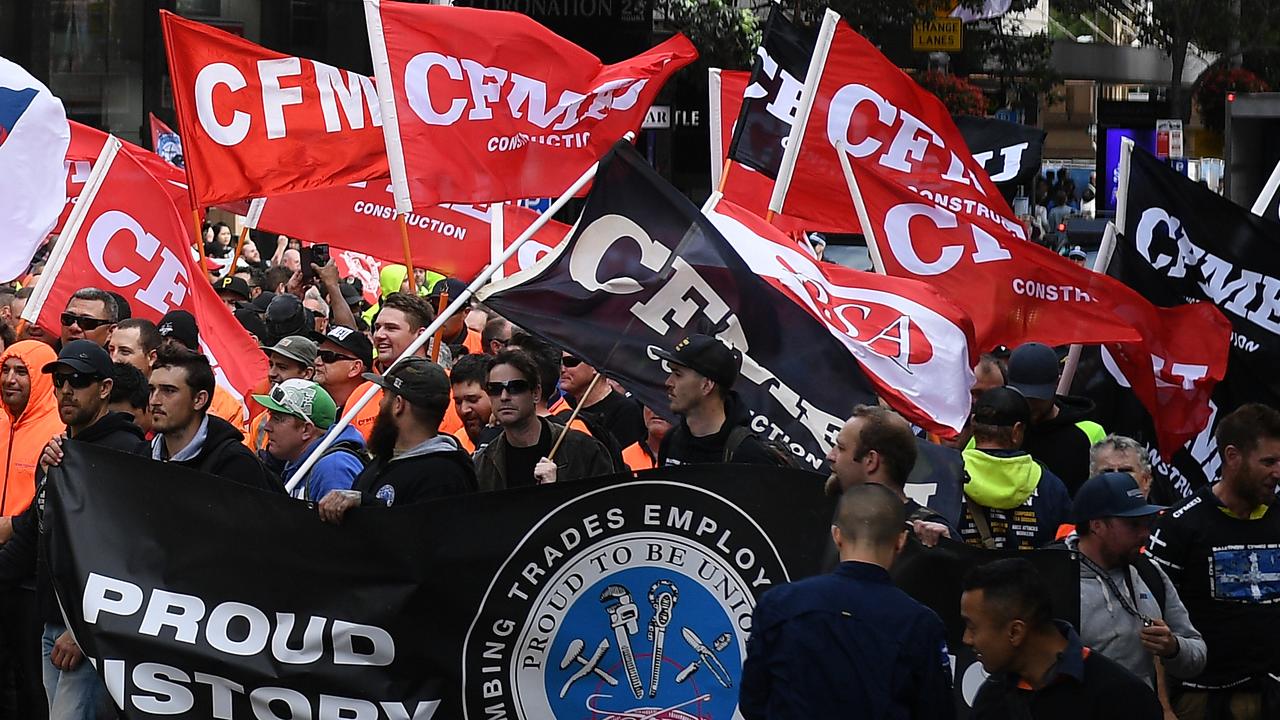Border Force airport strikes banned for three months
Border Force airport staff are banned from going on strike for three months after Fair Work found industrial action a security risk.

Border Force staff will be banned from going on strike at airports for three months after the industrial umpire found it “more than likely” national security weaknesses had been “exploited” by criminals or terrorists as result of recent union-led action.
In a judgment firmly rejecting union claims that strikes at nine international airports in recent months posed no threat to Australian borders, the Fair Work Commission found industrial action had “deliberately” reduced Border Force’s “mitigation capacity”.
The Border Force risk level had “escalated” and “deteriorated” as a result of the protracted strikes, commissioner Nicholas Wilson said in his decision, published yesterday.
Border Force lodged an urgent application to the commission to halt the industrial action early this month, ahead of further action planned by the Community and Public Sector Union throughout the school holidays.
The strikes had forced Border Force to make an “operational decision” between “smooth passenger flows” and “proper ... scrutiny” of arriving and departing passengers, Mr Wilson said.
“If an emphasis is given to facilitating passenger flows, (Border Force) risks missing something that should be given greater scrutiny, the consequences of which may well range from serious to catastrophic,” he said.
In hearings in Melbourne, the commission was told Border Force would train more staff during the three-month period.
The commission found the industrial action “was threatening and would continue to endanger the life, personal safety or health or welfare of the population or part of it”.
The airport strike action, in place since September, was part of a wider protest against public-service wages and conditions across dozens of federal agencies.
“Criminal or terrorist opportunistic behaviours become more likely … since systemic weaknesses can be more easily identified and exploited,” the commissioner said. “Such behaviour more than likely occurred within the recent period of protected industrial action.”
In a “highly sophisticated plan for industrial action”, union delegates had withdrawn staff without notice at several locations “for many hours of the day”, creating a “suffocating effect”, the commission found.
Consequently, “the capacity of the ABF to undertake its core functions was seriously affected”.
The widespread nature of the notified protected industrial action, coupled with heightened employee participation, “aggravates the risks faced by the ABF in performing its functions”.
The strike ban was backdated to an interim order on April 3 that halted immediate strikes.
Yesterday, CPSU national secretary Nadine Flood slammed the decision and “the conduct of the Department of Immigration and Border Protection and the Australian Border Force in this case”.
“We agree our members’ industrial action was designed to have a significant impact on the Border Force and the government, but categorically reject that this action would have posed a risk to the Australian community,” she said.
She said evidence from Border Force assistant commissioner Clive Murray contained “significant inaccuracies” and criticised “games played by Border Force”.
Ms Flood said that the union was considering an appeal.



